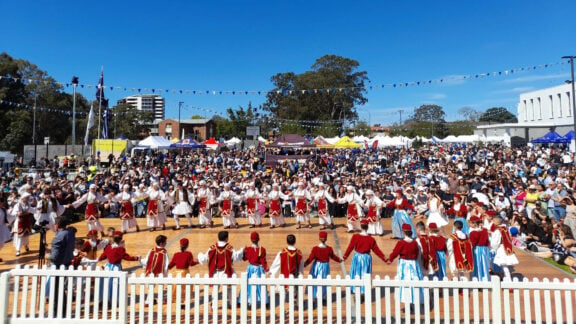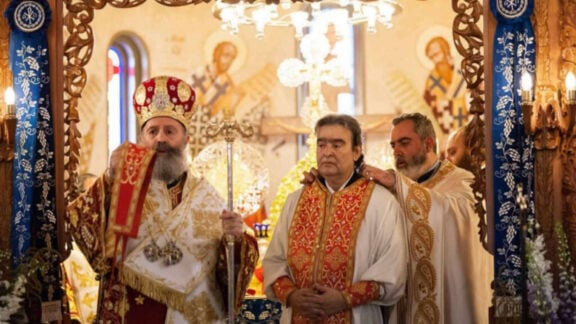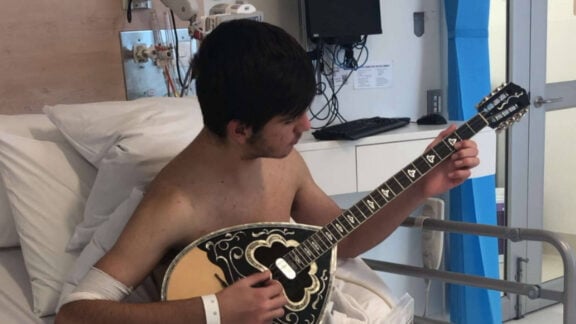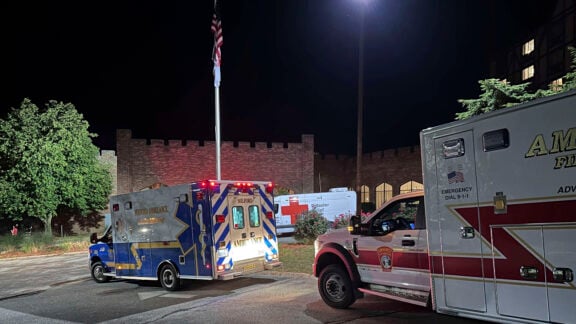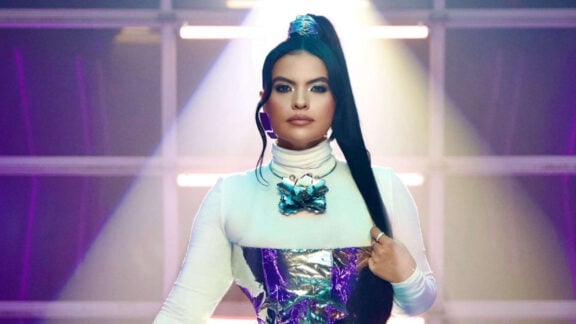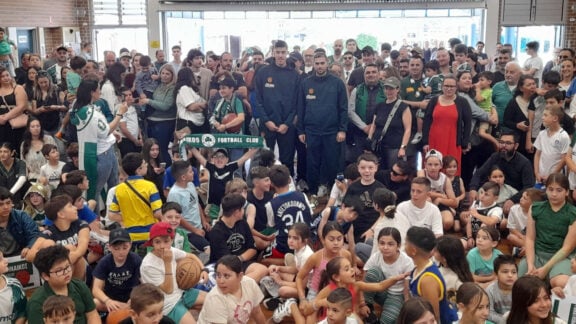The Greek Festival of Sydney was officially launched last week boasting an extensive program of arts and culture.
This years festival includes a ‘mini’ Greek film festival celebrating Greek cinema classics, a Bithikotisis retrospective, photography exhibition, writers festival, numerous lectures on Greek culture, a concert celebrating the works of Mikis Theodorakis with Greek performer Dimitris Basis, a Panigiri in September, concert with highly regarded singer Melina Aslanidou, the big Greek Fest at Darling Harbour event and much more.
The Greek Festival of Sydney is one of Australia’s largest and longest-running annual cultural events, established in 1980 to maintain the Greek community’s cultural and artistic practices.
The official presentation of the Festival’s program took place last Wednesday evening at three-course dinner event at The Grand Roxy in Brighton-le-Sands, attended by over 100 esteemed members of the Greek Community of Sydney and officials.
The Trade Commissioner of Greece, Katia Gkikiza; Press Councillor Konstantinos Giannakodimos; Georges River Council Mayor Nick Katris; Randwick City Councillor Alexandra Luxford; Bayside Councillor Andrew Tsounis; and Inner West Councillor Zoi Tsardoulias were there among others.
MC Artemis Theodori, coordinated the night presenting a number of speakers to the audience.
President of the Greek Orthodox Community of New South Wales (GOCNSW), Harry Danalis gave a heartfelt speech, followed by the Festival Chair of the Greek Festival of Sydney, Nia Karteris.
NSW Minister for Multiculturalism, Mark Coure MP; Member for Canterbury, Sophie Cotsis MP and the Consul General of Greece in Sydney, Christos Karras also commented on the 35 much anticipated events.
Minister Coure said the festival is “by far one of the most important cultural events that we have here in Sydney,” adding that “the Greek festival is a wonderful opportunity to celebrate the great contributions to our great state and our country by so many Greek Australians,” the Minister said.
On a similar note, Consul General of Greece in Sydney Christos Karras, said that “Greek festival enables Greek Australians and the broader Australian society “to honour and celebrate together all things Greek, that have creatively enriched multicultural Australian society”.
“With us tonight we have artists who are in the third and fourth generation who believe in their heritage, who want to promote it… so I think if we can produce 35 high-calibre events in 2022, I think we’ve got a long way to go,” Festival Chair, Ms Kateris, said.













All photos: Giannis Dramitinos
Lastly, a congratulatory letter from Dr Alfred Vincent, the first lecturer in Modern Greek Studies at the University of Sydney and a longtime collaborator and supporter of the festival was read out.
“As an old friend of the Festival, I have watched it developing over the decades into the prestigious institution that we see today. Particularly impressive is the great variety of events the Festival has presented. They have included theatre productions, talks, round table discussions, concerts, Greek dance, food and wine, art exhibitions and much more.
“A related initiative of the Greek Orthodox Community, the Greek Film Festival, has become an important institution in its own right. Over the years the Festival has brought us a wonderful series of artists from Greece. But even more valuable, in my view, is the way it has given a platform to a rich array of impressive local talent,” Der Vincent said.
“The spirit of the Festival is cosmopolitan in the finest Greek sense of the word. People of many different ethnic and religious backgrounds have taken an active part. Groups such as the Renaissance Players and the Andalus Arabic Choir have been delighted to participate, highlighting links between peoples in the Mediterranean area and beyond.
“Over these four decades, Australia has changed profoundly. The Greek immigrants who helped to develop this country after World War II have largely retired or passed away. Their descendants now form new generations of Australians wholly or partly of Greek origin. Meanwhile, waves of people have arrived from many countries, and in recent years Greek communities have again been reinforced by a significant number of new settlers (….) So what of the future? I think the Festival has found a formula which will continue to function effectively. But that does not mean it should remain static. In particular, I might suggest exploring new ways of fostering the modern Greek language. Culture and language are inextricably intertwined. Already of course the Festival includes Greek-language cinema and song, as well as theatre for children and adults, and awards for students who excel in the language. But maybe other initiatives can be added in the future. I’m sure new ideas will be welcome,” he concluded.
You can find the full events program of the 40th Greek Festival of Sydney and make your bookings here.


